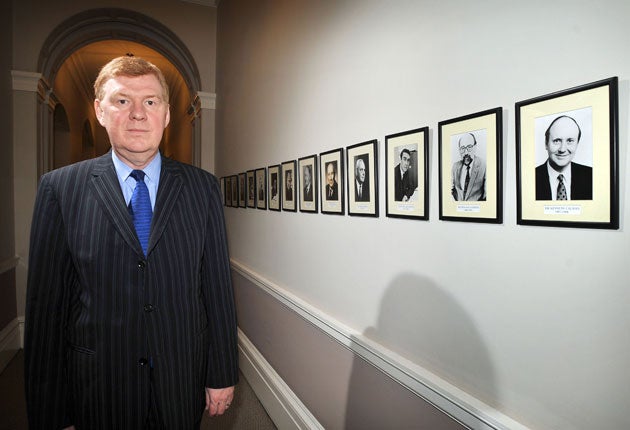Massive rise in cost to NHS of settling compensation cases
MPs demand cap on the huge fees solicitors can charge for successfully representing patients

Your support helps us to tell the story
From reproductive rights to climate change to Big Tech, The Independent is on the ground when the story is developing. Whether it's investigating the financials of Elon Musk's pro-Trump PAC or producing our latest documentary, 'The A Word', which shines a light on the American women fighting for reproductive rights, we know how important it is to parse out the facts from the messaging.
At such a critical moment in US history, we need reporters on the ground. Your donation allows us to keep sending journalists to speak to both sides of the story.
The Independent is trusted by Americans across the entire political spectrum. And unlike many other quality news outlets, we choose not to lock Americans out of our reporting and analysis with paywalls. We believe quality journalism should be available to everyone, paid for by those who can afford it.
Your support makes all the difference.The cost of no-win, no-fee legal claims against the National Health Service has risen 16-fold in five years. A breakdown of clinical negligence cases settled by the NHS under "conditional fee arrangements" (CFA), in which solicitors get paid only if they win a case, shows that their value – in costs and damages – has risen from £6.5m in 2004-05 to £108m last year.
Critics claim that more than a third of the cost is the result of lawyers' fees. MPs last night said that the figures suggested lawyers were taking advantage of the growing "compensation culture" and called for a wholesale review of the NHS litigation system after the general election.
"There is a sense that the compensation system is spiralling out of control," said the Liberal Democrat health spokesman, Norman Lamb. "The amount of public money that's going into compensation and particularly legal fees is becoming intolerable.
"Obviously we have got to compensate people when things go wrong in the NHS, but we need a thorough review of the system that will look at things like imposing limits on the amounts of time and money that can be spent on individual cases."
The NHS Litigation Authority (NHSLA), which handles claims against health service organisations in England and Wales, reported a "significant increase" in the number of claims received last year. Clinical claims rose by more than 11 per cent – to almost 6,000 – and non-clinical claims by more than 10 per cent in 2008-09, compared with the previous year.
House of Lords figures reveal the NHSLA closed 233 cases of clinical negligence against the health service, funded by conditional fee agreements, in 2004-05. This rose to 1,579 in 2008-09. The value of damages paid, following successful CFA cases, rose from £4.5m in 2004-05 to £68.8m last year. During the same period, claimant costs soared from £2.1m to £38.8m.
The amount paid out for all clinical negligence claims, however, rose from £661m to £807m. NHSLA leaders complained about the rising costs charged by claimants' lawyers under no-win, no-fee agreements – which the authority calculates amount to almost 38 per cent of all damages paid. In contrast, defence lawyers' costs amounted to 13.2 per cent of damages paid.
"The costs claimed by claimant lawyers continue to be significantly higher than those incurred on our behalf by our panel of defence solicitors," said the NHSLA chairwoman, Dame Joan Higgins. "This remains a very significant concern for us. The availability of CFAs, and the increase in their use by claimants, has meant that claimants' costs are often significantly disproportionate to the amount of damages paid, particularly in low-value claims."
A series of senior officials within the NHS and the Department of Health have argued for radical reform of a system which sees lawyers touting for business, often taking on only the most winnable cases, and then charging huge "success fees" following a judgement in their favour.
A report from Lord Justice Jackson last year recommended that legal costs should be paid out of victims' damages if they win their claim, with success fees capped at 25 per cent of the compensation awarded.
Earlier this month, the outgoing chief medical officer, Sir Liam Donaldson, confessed that he had been disappointed by the length of time it had taken to reform the medical litigation system – almost a decade after he had demanded changes.
Since 2001, the overall bill for successful claims against the NHS has doubled to over £8bn, and many lawyers receive larger pay-outs than the victims they represent. In the past five years there have been 5,500 cases where victims of NHS negligence received less than their lawyers. In one case, lawyers received a payment of more than £100,000 to represent a patient who received less than £2,000 in compensation.
Sir Liam said of his own suggestions for reforming the system: "The report I made on litigation hasn't yet been implemented, even though it was accepted."
Join our commenting forum
Join thought-provoking conversations, follow other Independent readers and see their replies
Comments